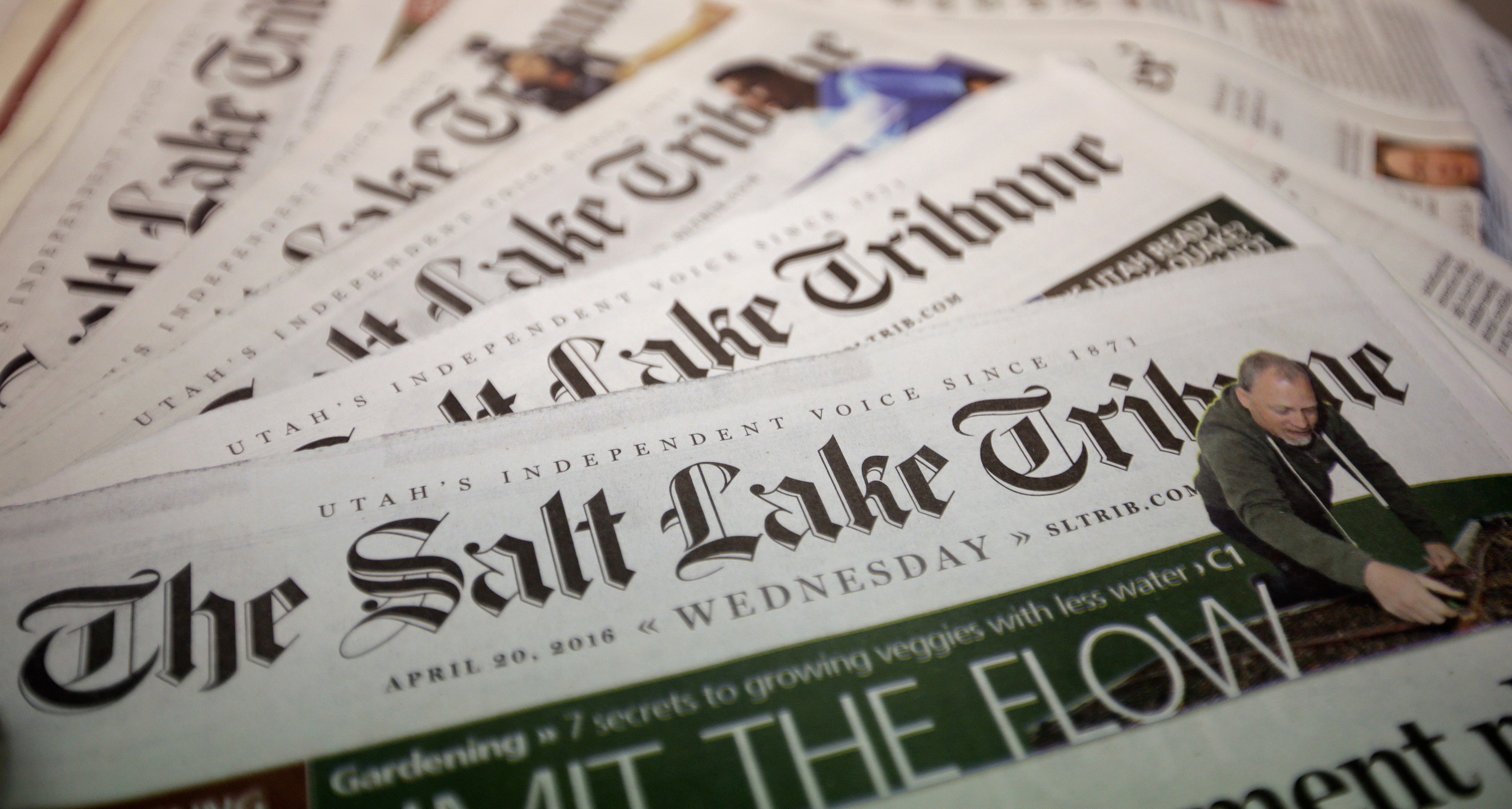Salt Lake Tribune to stop printing daily after 149 years
The Salt Lake Tribune will stop printing a daily newspaper after nearly 150 years at the end of the year and move to a weekly print edition

Your support helps us to tell the story
From reproductive rights to climate change to Big Tech, The Independent is on the ground when the story is developing. Whether it's investigating the financials of Elon Musk's pro-Trump PAC or producing our latest documentary, 'The A Word', which shines a light on the American women fighting for reproductive rights, we know how important it is to parse out the facts from the messaging.
At such a critical moment in US history, we need reporters on the ground. Your donation allows us to keep sending journalists to speak to both sides of the story.
The Independent is trusted by Americans across the entire political spectrum. And unlike many other quality news outlets, we choose not to lock Americans out of our reporting and analysis with paywalls. We believe quality journalism should be available to everyone, paid for by those who can afford it.
Your support makes all the difference.The Salt Lake Tribune announced Monday it will stop printing a daily newspaper at the end of the year after nearly 150 years and move to a weekly print edition.
The change won’t result in cuts to the newsroom staff of about 65 people, though some would be “redeployed,” the newspaper reported. Reporters and editors will continue to file breaking news online as it happens.
The new publication will be delivered by mail. Nearly 160 press operators, carriers and other employees will lose their jobs.
The news comes after two recent ownership changes: The paper was purchased in 2016 by Paul Huntsman, son of the late billionaire industrialist Jon Huntsman Sr. and brother to former U.S-Russia Ambassador Jon Huntsman Jr.
Last year, Paul Huntsman shepherded the Tribune into becoming a nonprofit in hopes of ensuring its long-term viability amid declining newspaper revenues nationwide. He cited continued declines and economic upheaval related to the coronavirus pandemic Monday as he announced the decision to newsroom staffers, calling it a painful but necessary concession.
“This is a historic moment in the industry, but one that reflects the reality of today’s news consumption,” Huntsman, who remains chair of the nonprofit board, said in a statement.
The new weekly publication is expected to be profitable, showcasing the reporters’ best enterprise work and in-depth stories, as well as obituaries and expanded editorial content.
“While we mourn the loss of our daily print edition, we eagerly embrace the opportunity of bringing an exciting new weekly product to our readers’ homes,” interim Editor David Noyce said.
The decision also ends a joint operating agreement with the other major daily in Salt Lake City the Deseret News. It is owned by the state's predominant faith, The Church of Jesus Christ of Latter-day Saints. The agreement, once common when many cities had two newspapers, had the two publications cooperating on printing, delivery and advertising but not stories.
The Deseret News has not announced its future plans for print, but did say in a story on its website it was laying off six journalists and giving severance packages to 18 staffers in visual editing and sales departments.
The change marks the end of an era that began in 1971, when daily press runs began for the publication then called “The Tribune & Utah Mining Gazette.” The newspaper once carried hundreds of pages a day, thick with print advertising. It had a daily circulation of nearly 200,000 subscribers in its heyday but has since plummeted to 36,000.
Newspapers scaling back printing days is an emerging trend in the industry that faces declines in advertising and circulation revenue, said Rick Edmonds, a media business analyst for the Poynter Institute.
The Tampa Bay Times and the Arkansas Democrat-Gazette are among other newspapers to have moved away from daily printed papers as the traditional business model gets pinched, he said.
The trend is disappointing for longtime newspaper people like Edmonds even if it's understandable from a business perspective.
“Something is lost when you don't print every day,” he said.